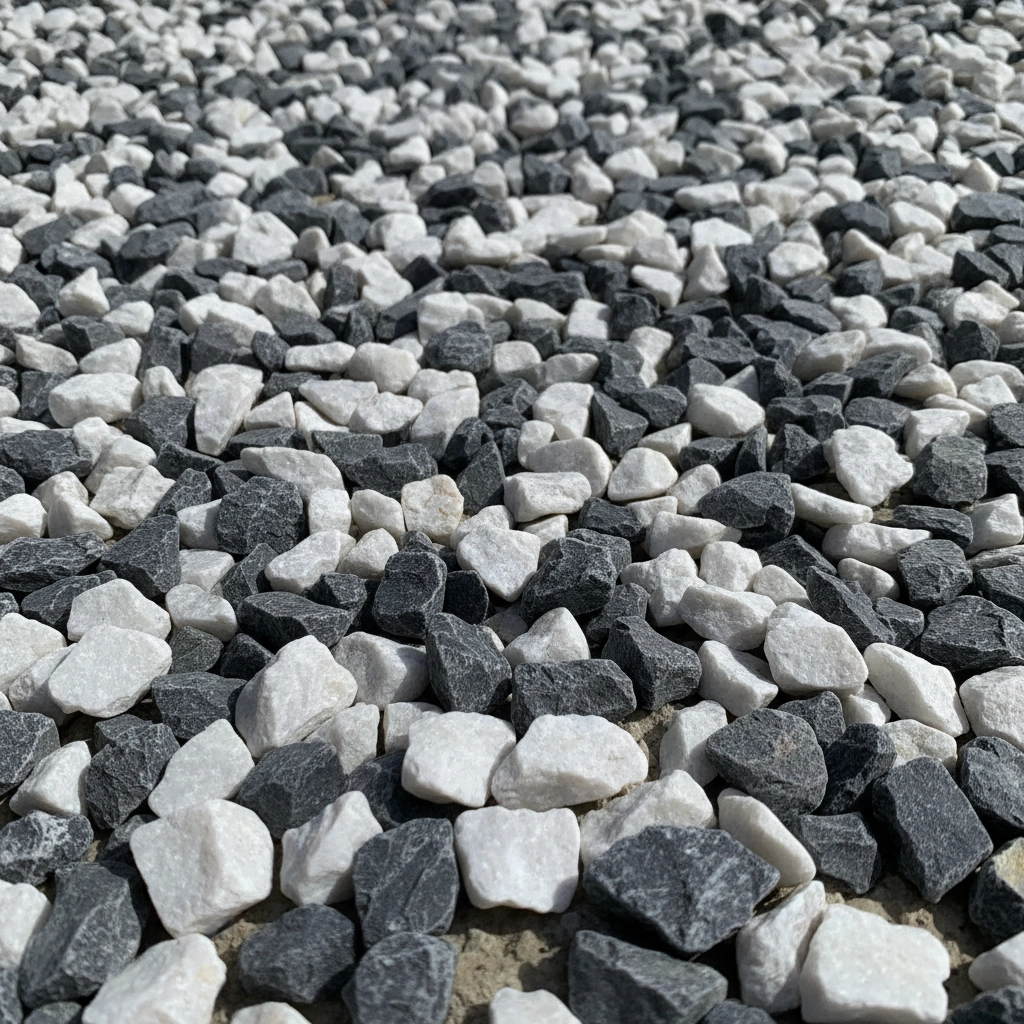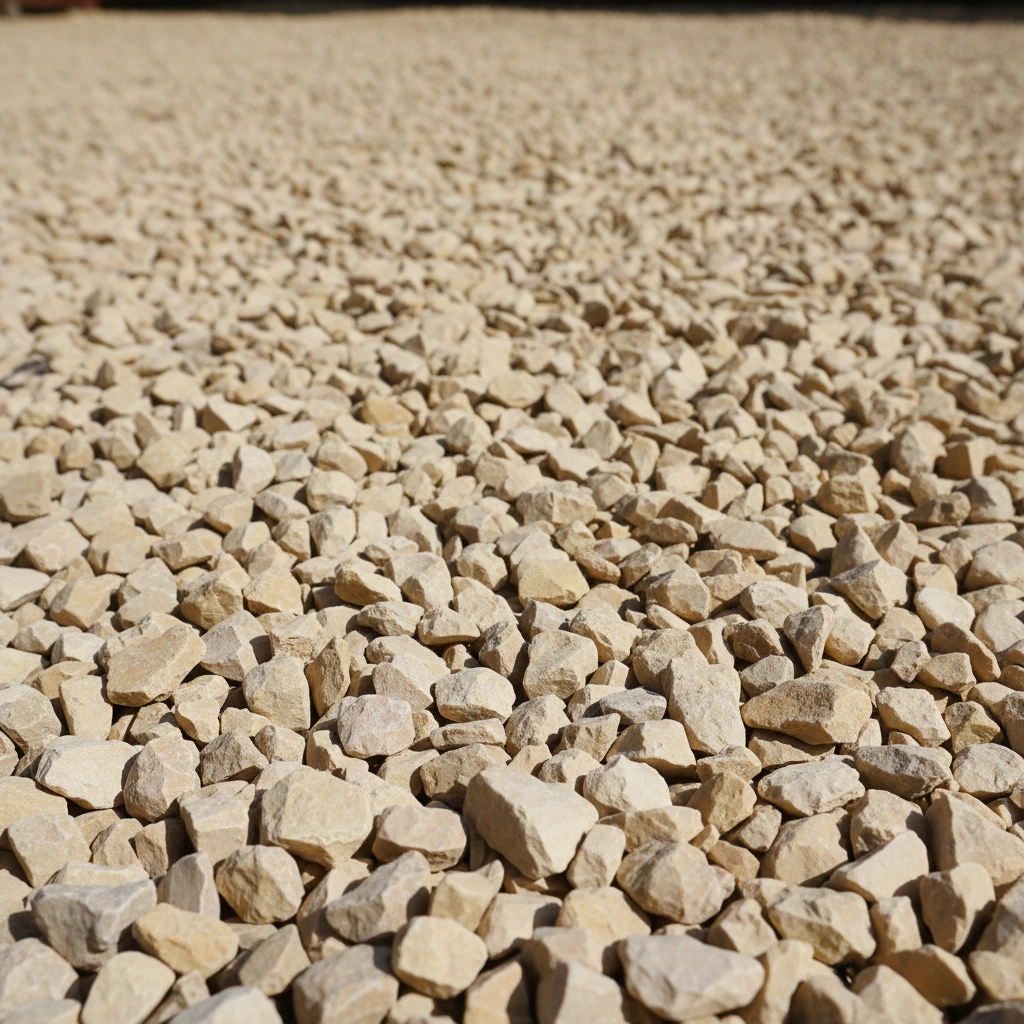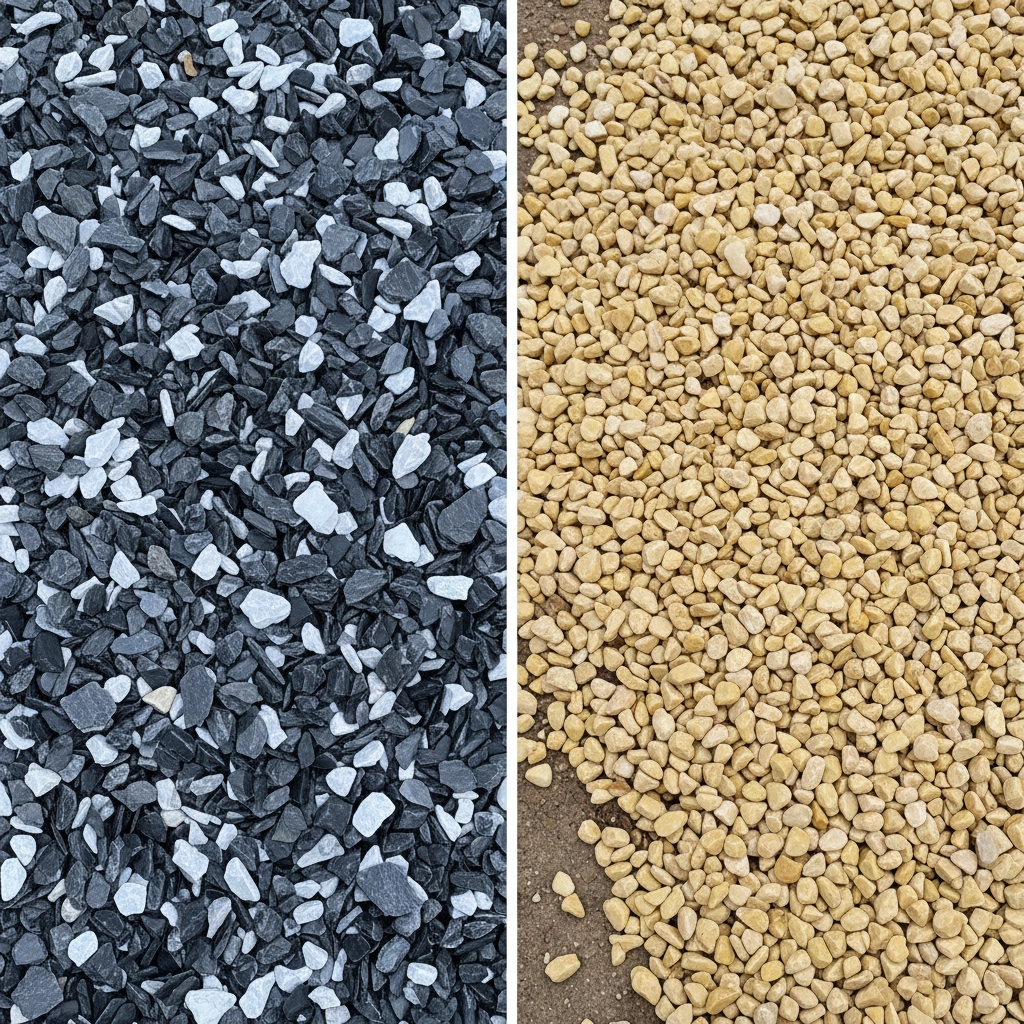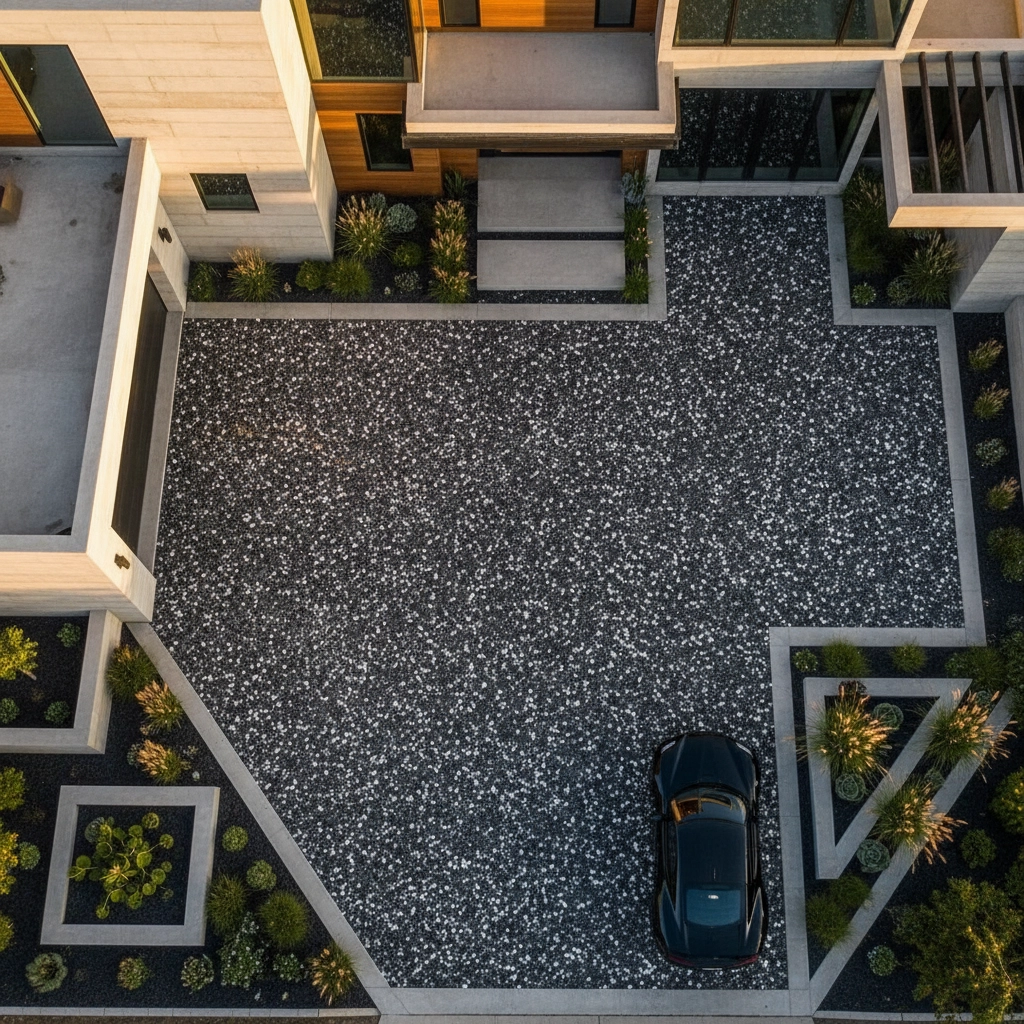Black Ice Gravel Vs Cotswold Gravel: Which Is Better For Your Driveway?
- Penny Wales
- Oct 7, 2025
- 5 min read
Choosing the right gravel for your driveway isn't just about picking something that looks good: it's about finding the perfect balance between style, durability, and practicality. Two popular options that often come up in discussions are Black Ice Gravel and Cotswold Gravel, but they couldn't be more different in terms of appearance and characteristics.
If you're standing at your window right now, trying to envision which would work better for your home, you're in the right place. Let's break down everything you need to know about these two gravel types so you can make an informed decision that you'll be happy with for years to come.
What Is Black Ice Gravel?
Black Ice Gravel is a premium decorative aggregate that combines two distinct materials to create a striking contemporary look. It's made up of polar white gravel sourced from Scandinavian glacial deposits mixed with charcoal whinstone chipping from Scottish quarries: essentially ancient volcanic rock.

The result is a sophisticated contrast that literally resembles black ice, hence the name. When you look at it from different angles, the interplay between the bright white stones and deep charcoal pieces creates an almost mesmerizing effect that works particularly well with modern architectural styles.
Black Ice Gravel: The Pros
Exceptional Durability: The volcanic rock component means this gravel is built to last. The charcoal whinstone is incredibly hard and resistant to wear, making it ideal for high-traffic driveways.
Weather Resistance: Both components have excellent weather resistance properties. The smooth, polished finish helps water run off efficiently, and neither frost nor intense sun will cause significant degradation.
Low Maintenance: Once properly installed, Black Ice Gravel requires minimal upkeep. The hard materials don't break down easily, so you won't need to top up as frequently as with softer alternatives.
Versatility: While it shines on driveways, Black Ice Gravel works equally well for pathways, garden borders, and even decorative water features. It's a true multi-purpose aggregate.
Visual Impact: If you want your driveway to make a statement, this is your material. The stark contrast creates a bold, contemporary look that works brilliantly with modern homes.
Black Ice Gravel: The Cons
Higher Initial Cost: Quality comes at a price. The specialized sourcing from Scandinavian and Scottish quarries means you'll pay more upfront compared to locally sourced alternatives.
Style Limitations: While stunning on contemporary homes, Black Ice Gravel might look out of place on traditional cottages or period properties where a softer, more natural appearance would be more appropriate.
Heat Absorption: The dark components can absorb quite a bit of heat on sunny days, which might not be ideal if you frequently walk on it barefoot during summer.
What Is Cotswold Gravel?
Cotswold Gravel represents the quintessential English countryside aesthetic. This limestone-based aggregate features warm, creamy tones with subtle golden hues that have been synonymous with traditional British architecture for centuries.

Sourced from the famous Cotswolds region, this gravel carries the same honey-colored characteristics that make Cotswold stone buildings so distinctive and beloved. It's the material of choice for anyone wanting to maintain an authentic, traditional appearance.
Cotswold Gravel: The Pros
Traditional Appeal: Nothing beats Cotswold Gravel for creating that classic English countryside look. If you have a period property or rural home, this material will complement your architecture beautifully.
Natural Warmth: The creamy, golden tones create a welcoming, warm appearance that works particularly well in garden settings and traditional landscapes.
Regional Authenticity: Using Cotswold Gravel connects your property to centuries of British architectural heritage: there's something special about that continuity.
Proven Performance: Despite being classified as a softer stone, Cotswold Gravel has been used successfully on driveways for decades. When properly installed with the right size (20mm is recommended), it performs well under normal vehicle traffic.
Blends Naturally: The subtle color variations within Cotswold Gravel mean it tends to blend seamlessly with natural surroundings rather than standing out boldly.
Cotswold Gravel: The Cons
Durability Concerns: Cotswold stone is inherently softer and more brittle than volcanic alternatives. Over time, you may notice some breakdown, particularly under heavy traffic or extreme weather conditions.
Higher Maintenance: The softer nature means you might need to top up your driveway more frequently and deal with occasional loose stones.
Limited Modern Appeal: While perfect for traditional settings, Cotswold Gravel might not provide the contemporary edge that modern homes require.
Head-to-Head Comparison

Durability Winner: Black Ice Gravel The volcanic rock component gives Black Ice Gravel a significant advantage in terms of longevity and resistance to wear.
Aesthetic Versatility Winner: Tie Both excel in their respective styles: Black Ice for contemporary, Cotswold for traditional. The winner depends entirely on your property's architectural character.
Maintenance Winner: Black Ice Gravel The harder materials and weather-resistant properties mean less frequent maintenance and topping up.
Cost Efficiency Winner: Cotswold Gravel Lower initial cost and local sourcing make Cotswold the more budget-friendly option upfront, though long-term maintenance costs may balance this out.
Weather Performance Winner: Black Ice Gravel Superior weather resistance and drainage properties give it the edge in harsh conditions.
Making the Right Choice for Your Property
The decision ultimately comes down to three key factors: your home's architectural style, your budget, and your maintenance preferences.
Choose Black Ice Gravel if:
You have a contemporary or modern home
You want minimal maintenance requirements
You're willing to invest more upfront for long-term durability
You want your driveway to be a design feature
You live in an area with harsh weather conditions
Choose Cotswold Gravel if:
You have a period property or traditional home
You prefer a natural, understated appearance
You're working with a tighter initial budget
You want to maintain regional architectural authenticity
You don't mind occasional maintenance

Installation Considerations
Regardless of which gravel you choose, proper installation is crucial for optimal performance. For driveways, you'll want to use angular stones in the 14mm-20mm range, as these sizes interlock effectively to create a stable, compact surface. Avoid smaller gravels (10mm or less) as they tend to get stuck in tire treads and don't provide adequate stability.
Both types benefit from proper base preparation, including adequate drainage and a suitable sub-base. Consider consulting with professionals who understand local ground conditions and can recommend the best installation approach for your specific situation.
The Bottom Line
There's no universally "better" choice between Black Ice Gravel and Cotswold Gravel: it all depends on what you value most. Black Ice Gravel offers superior durability and contemporary style but comes with a higher price tag. Cotswold Gravel provides traditional charm and lower initial costs but may require more maintenance over time.
Consider your home's character, your long-term plans, and your maintenance preferences. Both materials can create beautiful, functional driveways when properly installed and maintained. The key is choosing the one that best aligns with your specific needs and aesthetic vision.
If you're still unsure, consider visiting suppliers to see both materials in person. Sometimes seeing and feeling the actual stones can help make the decision clearer than any amount of research.
Comments